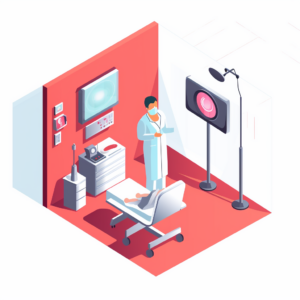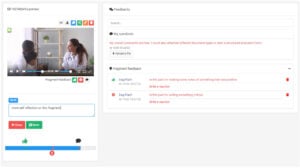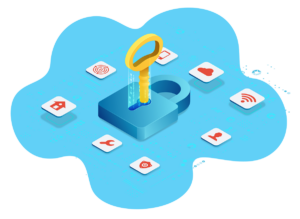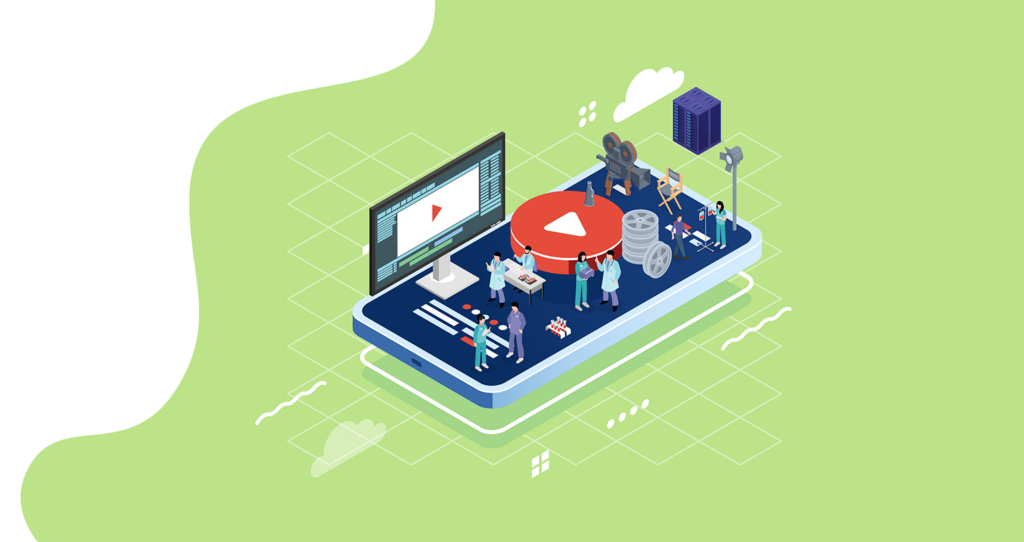Updated: 4 February, 2025
Today’s dynamic medical setting is more complex than ever, and the evolution of medical recording software and simulation recording systems are reshaping the way medical students learn and grow. With greater access to innovative tools and knowledge, the teaching of medicine undergoes a significant transformation. In this blog, we will explore the benefits that recording software brings to healthcare education.
Understanding the need for advanced recording software in medical education
There are several compelling reasons for the need of advanced recording software in medical education, a few are mentioned below:
1 – Enhanced learning opportunities: simulation recording system provides medical students with opportunities to record and review their interactions with patients, allowing for reflection and analysis of their clinical skills and decision-making processes. This reflective practical is crucial for deepening learning and improving performance.
2 – Simulation training: simulation training is an integral part of medical education, allowing students to practise clinical skills in a safe and controlled environment. Recording software enables the students to record these simulated scenarios, and would provide them with valuable feedback on their performance from different sources.
3 – Feedback and assessment: with the ability to review specific moments in consultations or simulations, students can receive targeted feedback on their communication skills, clinical reasoning, and other skills, leading to more effective learning outcomes.
4 – Research and quality improvement: recorded consultations and simulations can be used for research purposes and quality improvement initiatives in medical education. Analysing trends and patterns in student performance can inform curriculum development, identify areas for improvement, and enhance the overall quality of education programs.
In summary, medical recording software plays a crucial role in modern medical education by providing enhanced learning opportunities, facilitating simulation training, enabling feedback and assessment, and much more.
Confidentiality and privacy: the big concern with medical recording software
Patient confidentiality and privacy are paramount concerns when it comes to implementing medical recording software. While the benefits of recording in healthcare, particularly for trainees and students are undeniable, there are many regulations and policies such as GDPR and patient confidentiality laws that require a cautious approach.
So, how do we achieve a balance between the significant advantages of recording software and these legitimate concerns?
First and foremost, it’s essential to ensure that any recording software used in a medical setting complies fully with the relevant privacy regulations. This includes implementing robust encryption protocols, access controls and data storage practices to safeguard patient information.
Additionally, clear guidelines and protocols should be established regarding the use and access of recorded data. Trainees and students must be educated on the importance of patient confidentiality and their responsibilities in maintaining privacy when using recording software. Regular training sessions and ongoing monitoring can help reinforce these principles and mitigate the risk of privacy breaches.
Furthermore, incorporating patient consent into the recording process is crucial. Patients should be informed about the purpose of recording, how their data will be used, and given the opportunity to provide informed consent.
Read this blog for more information on how to video record patients in compliance with GDPR.
In many countries, such as those in the Benelux region, training medical students through real patient interactions is a widespread practice. Medical schools in this area often prioritised hands-ons learning, providing students with invaluable exposure to authentic clinical settings. On the other hand, in other regions, simulation-based training is the preferred method, using actors to simulate patient scenarios. This method offers a controlled environment for students to practise and refine their skills, preparing them to handle diverse medical situations safely and effectively.
Ultimately, while the benefits of medical recording software are significant, they must be balanced with strong initiatives to protect patient privacy and confidentiality.
Introducing Videolab: Your comprehensive medical recording solution
Videolab is a GDPR compliant healthcare video sharing platform, revolutionising the learning experience by enabling students to share consultations with assessors or peers, facilitating valuable feedback and self-reflection. The Videolab Recorder app enables safe recording of the patients and the Videolab system allows safe storage and sharing of said recordings.
Students are able to record and share patient or simulation consultations in a safe environment, Videolab medical recording software promotes a reflective learning approach. Once the video is uploaded and encrypted, students can watch back the recording and review their own performance, and identify areas for improvement. These recordings are then shared with pre approved assessors to mark and evaluate.
Videolab bridges the gap between theory and practice by offering a seamless recording system for both simulated and real patient consultations.
Key Features of Videolab
1 – Simulated Scenario Recording
 Videolab has helped transform medical education, particularly in the universities across the Netherlands and Belgium. Originally developed for the General Practitioner (GPs) programme ICHO, Videolab has become an indispensable tool for safe patient recording, reflection, and sharing.
Videolab has helped transform medical education, particularly in the universities across the Netherlands and Belgium. Originally developed for the General Practitioner (GPs) programme ICHO, Videolab has become an indispensable tool for safe patient recording, reflection, and sharing.
Through the Flemish General Practitioner organisation, all big Flemish universities such as KU Leuven, University of Gent, VUB, Maastricht University, and University of Antwerpen started using Videolab.
In the training of medical education, providing students with realistic scenarios is critical to preparing them for the complexities of real-world practice. Videolab empowers students to immerse themselves in authentic patient consultations, enhancing both practice and learning, making the most out of patient consultations.
With Videolab, students not only practise their clinical skills but also engage in reflective learning, leveraging the platform’s features to analyse their performance and identify areas for improvement.
2 – Time-Fragmented Feedback
As mentioned above, students are able to watch the recording back and reflect on how they believe the consultation went. To facilitate this reflection process, Videolab offers a time fragmented feedback feature that allows them to timestamp moments in the consultation and add comments. These timestamps can be identified by where students believe they performed well, need improvement, or would like to assign a question for their assessors opinion.
With the ability to pinpoint and annotate critical moments in their consultations, students can actively engage in self assessment and receive personalised feedback. They are also able to identify their strong points and what skills they are particularly good at.
Additionally, when sharing these recordings, Videolab facilitates peer to peer feedback and reflection. Students are able to share a recording with a pre approved peer and ask for feedback. Allowing both peers to improve their assessment skills and feedback delivery skills. Both of which, the final assessor can review and comment on.

3 – Secure Storage and Accessibility

Videolab is designed with the highest standard of privacy by design architecture. The team leverages LINDDUN to systematically analyse and mitigate any potential privacy risks.
Essentially, Videolab deals with any privacy concerns when recording both real patients, and simulated consultations, allowing all efforts to be focused on using the recordings to educate trainees and students in the best way possible.
This may all sound very complicated, which is why our slogan is “building a simple and safe digital future”, we have aimed to make Videolab extremely user friendly and accessible to all. Take a look at our 2 minute demo here.
Conclusion
The evolution of medical recording software has enabled a new era of learning and skill development in the field of healthcare. As outlined throughout this blog, the advantages of using recording software in medical education are profound. However, with this, it is imperative to address the safety concerns around GDPR regulations and patient confidentiality.
Videolab emerges as a comprehensive solution to these challenges, offering a GDPR compliant healthcare video sharing platform that prioritises patient privacy while transforming the learning experience for medical students. With its seamless recording, secure storage, and innovative time-fragmented feedback feature. Videolab bridges the gap between theory and practice, empowering students to engage in reflective learning and targeted improvement.
